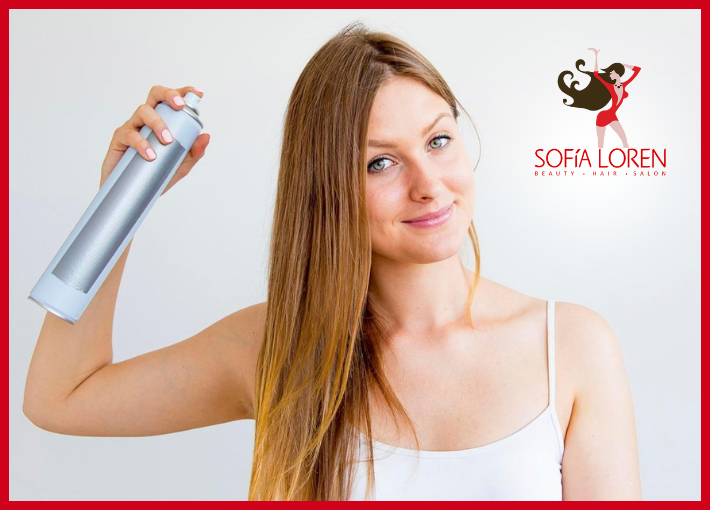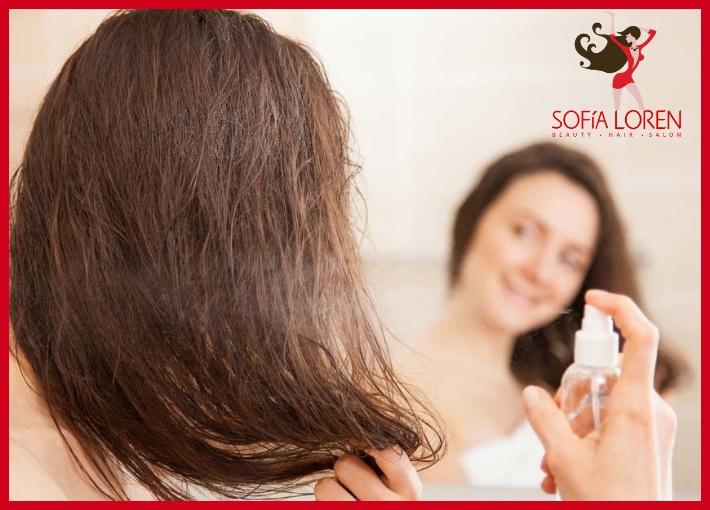Dry shampoo has gained popularity as a convenient and time-saving alternative to traditional hair washing. However, there are often questions about its effectiveness and impact on overall hair health. Read these tips about its benefits, potential drawbacks, and the best practices for incorporating it into your hair care routine. Have questions? Come on in and ask Sophia and her team!
You just got in a quick workout, so you give your hair a spritz of dry shampoo. You woke up late without time to shower, so you spray in some dry shampoo. You’re feeling a little greasy while you’re traveling, so — you guessed it — you turn to your trusted friend, dry shampoo.
This ingenious beauty product advertises some of the same benefits as its bath-time counterpart. But does dry shampoo do as good of a job as regular shampoo? The short answer is no, dry shampoo can’t replace shampooing and rinsing your hair clean.
Dermatologist Wilma Bergfeld, MD, explains what you need to know about refreshing your tresses with dry shampoo and why it’s not a substitute for the real thing.
What is dry shampoo?
These alcohol- or starch-based sprays nix the grease and oils in your hair while adding volume. Some dry shampoo products deliver the drying agents through an aerosol spray, while others provide tinted powder to match your hair color.
Fun fact: You can actually get the same effect by shaking corn starch into your hair! But using an aerosol spray is, of course, a little easier and less messy.
How does dry shampoo work?
It’s pretty simple, actually. “The alcohol or starch in the product soaks up the excess oil and grease in your hair, giving it a cleaner, fresher appearance,” Dr. Bergfeld explains.
At first, dry shampoo makes your hair look and feel fresher and less greasy. But it’s important to know that the “shampoo” part is sort of a misnomer, as dry shampoo doesn’t actually clean your hair. For that, you’ll need wet shampoo and water.
Is dry shampoo bad for your hair and scalp?
A little bit of dry shampoo is OK, and it’s safe for all types of hair. But does adding that dry powder every few days actually keep your hair and scalp healthy? Dr. Bergfeld says no — not for long, anyway.
“The scalp collects chemicals and pollutants both from the air and from cosmetic care products,” she explains. “Dry shampoo freshens your hair by removing oils, but its actual cleansing power is only minimal.”
There are some risks associated with using a lot of dry shampoo, though, as well as going too long without wet-washing your hair.
The risks of dry shampoo
If you’ve ever used a little too much dry shampoo, you know the feeling: Your hair looks fresher than it did before, but it feels weird — kind of grainy, almost sandy. That’s filmy residue building up on your scalp, and it can cause a variety of problems.
Dr. Bergfeld highlights some of the issues that your dry shampoo habit can cause.
- It can irritate your scalp: In the short term, dry shampoos mask the appearance of debris in your hair, but ultimately, it becomes a contributing factor. Dirt, bacteria, yeast and product use cause build-up that can lead to clogged pores, painful pimples or bacterial infections. It can also cause scales or scalp rash.
- It can cause breakage: Alcohol, which is an ingredient in many dry shampoos, dries out your tresses, which can make them brittle. Dry, fragile hair is more likely to tangle, crack and fracture.
- It may impact hair growth: All of those irritants could contribute to long-term problems. Studies show that an unhealthy scalp can ultimately lead to inflammation that reduces hair growth.
Going too long without washing your hair can result in dandruff and other kinds of scalp irritation, too. “You have to wash or shampoo the scalp once in a while to have healthy hair and scalp skin,” Dr. Bergfeld reiterates.
Dry shampoo vs. washing your hair
The bottom line is that your hair can get kind of gross — and only a wet shampoo can truly cleanse your scalp. Wet shampooing cleanses the dirt, bacteria and yeast that builds up on your scalp, as well as residue from products.
“Dry shampooing has its place, but it can’t replace wet shampoo,” Dr. Bergfeld says. “Your hair and scalp need to be washed and rinsed intermittently to keep it clean.”
But Dr. Bergfeld acknowledges that there are times when dry shampoo is your best option. If you’re traveling or camping and a shower isn’t available, or if you’re injured or ill and unable to bathe, this type of product can help maintain your hair and scalp.
But only for a little while. And you shouldn’t use dry shampoo for several days in a row.
How to use dry shampoo
If you choose to use dry shampoo, here are ways to minimize its appearance and impact on your hair:
- Only spray it on oily areas.
- While spraying, keep the canister at least 6 inches from your scalp.
- After spraying, massage your scalp to evenly distribute the product down to your roots.
- Carefully and gently brush through any patches where you’ve accidentally added too much dry shampoo.
- To avoid extra dryness or static, don’t spray the ends of your hair. If the tips feel too dry, you can add a pea-sized amount of coconut oil or hair conditioner.
At Sofia Loren Hair Salon, our skilled stylists understand the unique needs of your hair and can recommend the most suitable products and treatments to help you maintain a vibrant look. Contact us today at 561.405.1884 and have the BEST hair experts in Boca Raton. For exclusive content and giveaways, follow us on Instagram at @Sofialorensalon!
Reference: [https://health.clevelandclinic.org/does-dry-shampoo-actually-keep-your-hair-clean/]


